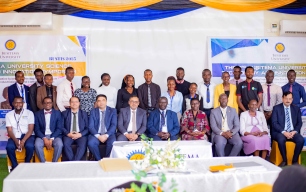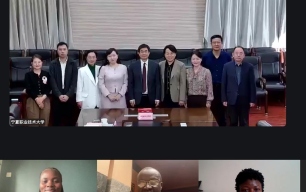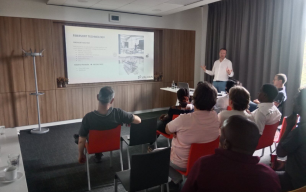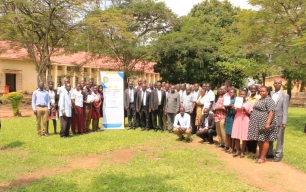Empowering Refugees and Host Communities in Uganda
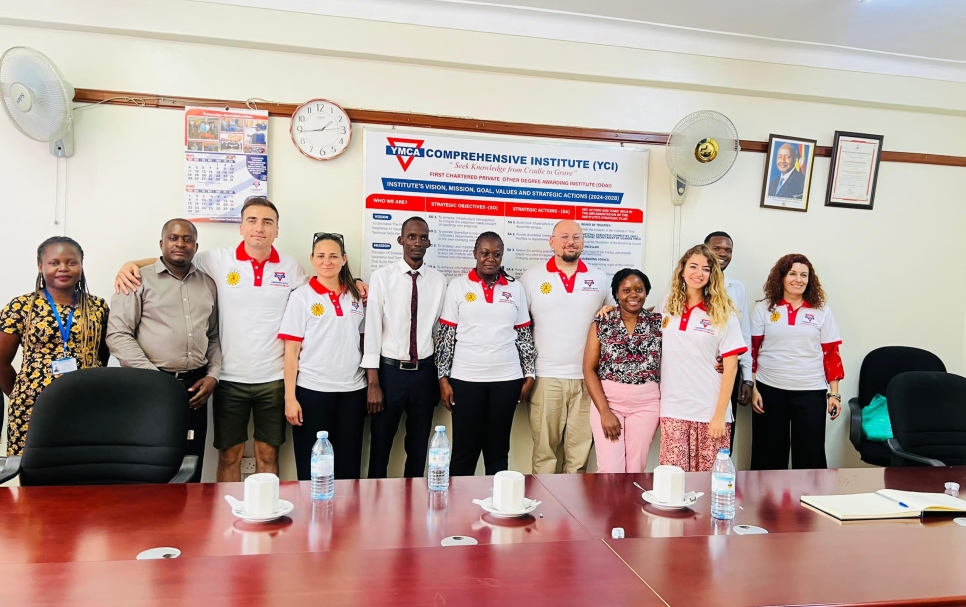
When 20-year-old Amina fled conflict in her home country, she arrived in Uganda with nothing but hope for safety and a better future. Like many young refugees, she faced enormous barriers: language differences, limited opportunities, and the challenge of earning a livelihood in an unfamiliar land. Yet Amina’s story is not unique. Uganda hosts one of the largest refugee populations in the world, and for many young people in both refugee and host communities, the struggle to access education and employment is a daily reality.
A new initiative, the RiTE Project (Empowering Refugees Through Inclusive Skills Training), is stepping in to change that narrative. Funded by the European Union under the Erasmus+ KA2 Capacity Building programme, RiTE seeks to transform vocational education in Uganda by equipping both refugees and host community members with the skills they need to build meaningful, sustainable futures.
Over the past decade, Uganda has made strides in improving youth skills training, but challenges remain particularly stark in refugee-hosting regions. Many young people arrive from countries affected by war, poverty, and health crises, often without assets, qualifications, or networks. At the same time, Ugandans in host communities frequently face similar struggles, competing for limited resources and opportunities.
“Skills are more than just a pathway to jobs, they are a pathway to dignity and self-reliance,” says Dr. Edwin Kamalha of Busitema University, one of the lead partners in the project. “With RiTE, we are not only building capacity in institutions but also opening doors for young people who have been marginalized for far too long.”
RiTE focuses on reskilling and upskilling Vocational Education and Training (VET) professionals across partner institutions in Uganda. By enhancing the capacity of technical education centers and their staff, the project ensures they are better equipped to serve both refugees and host community youth.
This means developing training programs that are accessible, inclusive, and practical, providing participants with the knowledge and tools they need to find employment or start small businesses. Through this approach, RiTE aims to break the cycle of marginalization and unlock pathways to economic empowerment.
The project brings together a powerful coalition of local and international partners, each contributing expertise and experience: Busitema University (Uganda); USSIA Uganda Small Scale Industries Association (Uganda); AFFCAD – Action for Fundamental Change & Development (Uganda); YMCA Comprehensive Institute (Uganda); VOCAX Startup Hub and Training Center (Uganda); Universidad de Alicante (Spain); COSVITEC SCARL (Italy), and Asociacija IVAIGO (Lithuania).
Together, these institutions are creating a skills ecosystem that not only supports refugees but also strengthens the resilience of host communities, fostering coexistence, collaboration, and shared growth.
Running from 2024 to 2026, RiTE aims to leave behind a legacy of stronger vocational institutions and more empowered communities. By improving employability and creating opportunities, the project is enabling people to take control of their futures, whether they are rebuilding their lives after displacement or striving for a better livelihood in their home communities.
In Uganda’s refugee settlements and surrounding host communities, the promise of RiTE is clear: skills are the key to turning survival into opportunity, and displacement into resilience.
- 84 views

